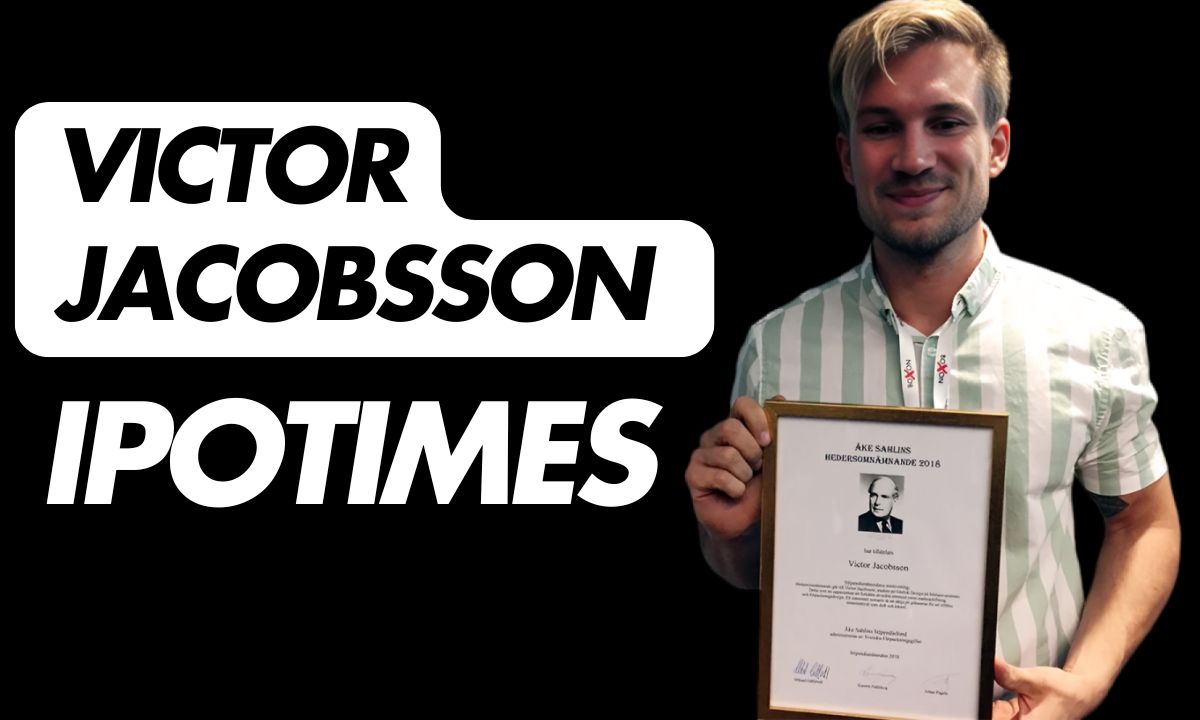In the dynamic world of financial technology, few names shine as brightly as Victor Jacobsson. As a fintech pioneer and co-founder of Klarna, he’s transformed how millions handle their everyday payments.
His early exposure to international markets and financial systems during his university years proved invaluable. Working part-time at various financial institutions, Jacobsson developed a keen understanding of the gaps in traditional banking services – insights that would later shape Klarna’s innovative approach to consumer finance.
Early Life and Education
Victor Jacobsson’s journey into fintech leadership began in Stockholm, Sweden. At the Stockholm School of Economics, he didn’t just earn a degree – he laid the foundation for what would become a global financial revolution.
Key Educational Milestones:
- Stockholm School of Economics (2002-2005)
- Focus on Financial Economics
- Student Banking Project Leader
- Early exposure to payment systems challenges
The Birth of Klarna
The story of Klarna’s inception reads like a classic startup fairy tale, but with a distinctly Swedish twist. In 2005, Jacobsson joined forces with Sebastian Siemiatkowski and Niklas Adalberth. Their shared vision? Making online payments simpler and safer for everyone.
“We saw a broken system where consumers feared online shopping and merchants lost sales. Someone had to fix it.” – Victor Jacobsson
Initial Challenges:
- Limited funding in early stages
- Skepticism from traditional banks
- Regulatory hurdles
- Market education needs
The team’s first breakthrough came when they secured a meeting with Investment AB Öresund, leading to their initial seed funding of 60,000 SEK.
This modest investment, combined with their relentless drive, enabled them to develop their first prototype and sign their first merchant partner – a small Swedish online bookstore that would prove their concept’s viability.
Klarna’s Rise to Global Prominence
Under Jacobsson’s financial stewardship, Klarna transformed from a Swedish startup into a global payment solutions powerhouse.
| Year | Milestone | Impact |
| 2005 | Foundation | Swedish market entry |
| 2010 | Nordic expansion | Regional dominance |
| 2015 | US market entry | Global presence |
| 2020 | 90M+ customers | Market leadership |
By 2018, Klarna’s innovative approach had caught the attention of major global retailers. Partnerships with giants like H&M, Nike, and ASOS catapulted the company into the spotlight, while their mobile app revolutionized how consumers interacted with their finances.
The merchant integration systems they developed became industry standards, setting new benchmarks for payment processing efficiency.
Financial Innovation and the Future of Payments
Jacobsson’s approach to financial innovation revolutionized consumer banking through:
- Risk Assessment Innovation
- Proprietary credit scoring
- Real-time decision making
- Machine learning integration
- Merchant Integration
- One-click purchase solutions
- Seamless API integration
- Multi-currency support
- Consumer Protection
- Buy now, pay later safeguards
- Transparent fee structure
- Dispute resolution systems
Their groundbreaking approach to risk management introduced a new paradigm in consumer credit assessment. Rather than relying solely on traditional credit scores, Klarna developed a sophisticated algorithm incorporating over 200 data points to make instant credit decisions. This innovation not only reduced fraud but also democratized access to flexible payment options for millions of consumers.
Jacobsson’s Departure and Continuing Legacy
After stepping back from operational duties, Jacobsson’s industry leader status only grew. His legacy includes:
- Mentorship of emerging fintech entrepreneurs
- Investment in promising startups
- Advisory roles in financial technology
- Continuing influence on Swedish innovation
In the venture capital world, Jacobsson’s post-Klarna investments have shown remarkable foresight. His portfolio companies share a common thread: they all leverage technology to solve fundamental problems in financial services.
Through careful mentorship and strategic guidance, he’s helped numerous startups navigate the complex intersection of consumer banking and technology innovation.
The IPO Speculations and Future Outlook
Current market analysis suggests strong potential for a Klarna IPO, with experts pointing to several key factors:
Market Conditions:
- Growing BNPL sector
- Strong digital payment adoption
- Post-pandemic e-commerce boom
- Favorable fintech valuations
Business Metrics:
- 90M+ active consumers
- 200K+ merchant partnerships
- Operations in 17 countries
- Consistent revenue growth
Recent business insights suggest Klarna’s potential IPO could value the company at over $40 billion, making it one of Europe’s most valuable private fintech companies.
Industry analysts point to the company’s strong performance in key metrics: customer acquisition costs have decreased by 27%, while merchant satisfaction rates have risen to 94%, indicating sustainable growth potential in an increasingly competitive market.
Conclusion
Victor Jacobsson’s journey from Swedish entrepreneur to fintech leader demonstrates the power of innovative thinking in financial technology. Through Klarna, he’s not just created a successful company – he’s helped reshape global commerce.
Looking ahead, the impact of Jacobsson’s work continues to ripple through the financial technology sector. His emphasis on combining innovation with user-centric design has influenced countless fintech startups, while his approach to global expansion serves as a blueprint for companies looking to scale internationally.
The story of Victor Jacobsson and Klarna remains a testament to the transformative power of visionary leadership in financial technology.
Key Takeaways:
- Pioneered BNPL services globally
- Transformed online payment security
- Influenced modern fintech development
- Created lasting industry standards

